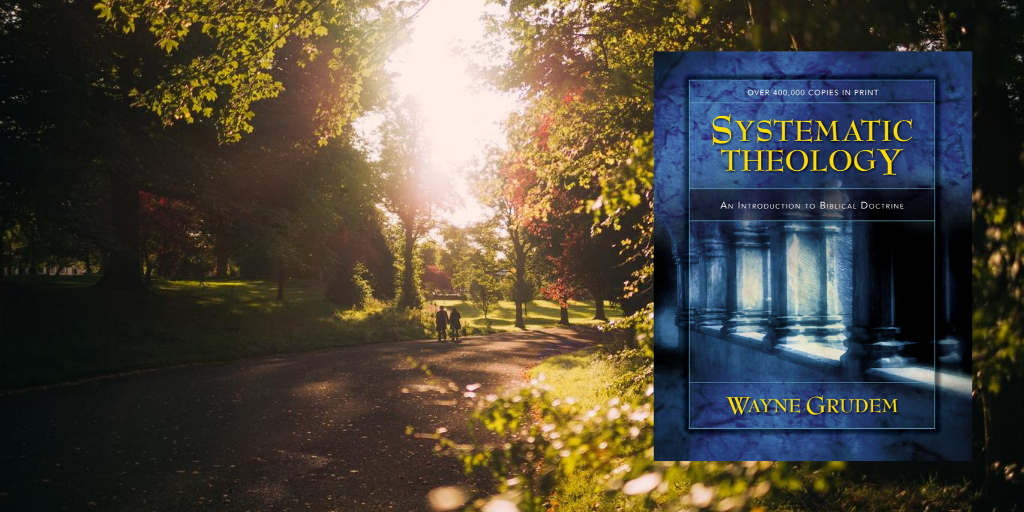Reading Systematic Theology with Wayne Grudem – What is the millennium? When does it occur? Will Christians go through the Great Tribulation?
This post is part of a 50+ post series from the classic work by Wayne Grudem (PhD, Cambridge), Systematic Theology: An Introduction to Biblical Doctrine. The aim of each post is to provide an overview of each chapter in the book and related resources for each topic.
Synopsis of Chapter
In this chapter in the doctrine of the future section, Wayne Grudem covers the millennium. The millennium means “one thousand years.” Grudem reviews the three major views of the millennium: amillennialism, postmillennialism, and premillennialism. He provides the strengths and weaknesses of each of the positions, including two permutations of premillennialism. Grudem advocates for historic premillennialism.
Amillennialism
The simplest explanation of the millennium is “amillennialism”. Amillennialism teaches there is no millennium. According to this view, the present church age will continue until the time of Christ’s return. At that point, everyone will be resurrected and judged.
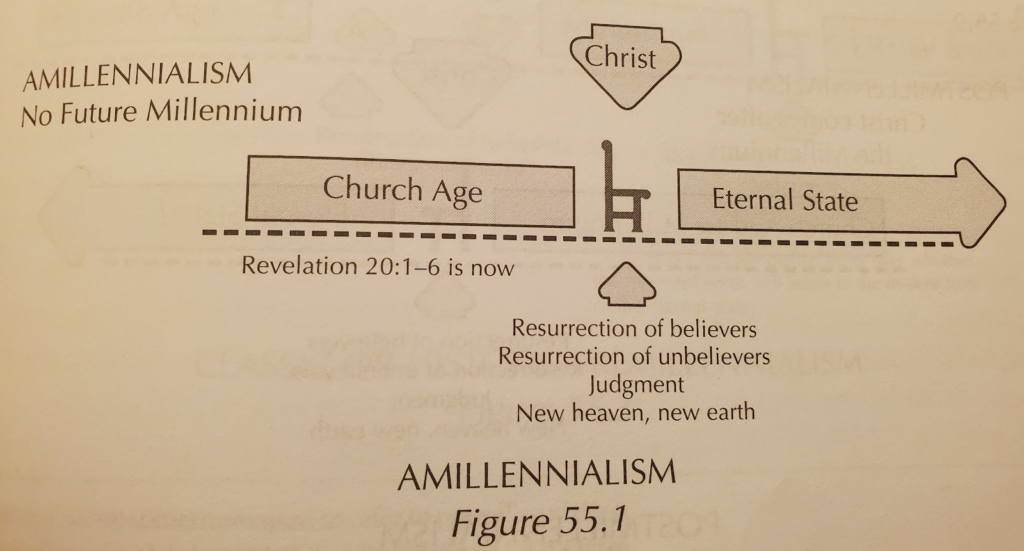
Some Arguments for Amillenialism
- Only one passage in the Bible mentions the millennium (Revelation 20:1-6). A theological doctrine should not be built on one passage.
- The “millennium” should be understood symbolically in a basically symbolic book.
- Several passages seem to indicate only one resurrection – not two. See John 5:28-29; Acts 24:15; Daniel 12:2.
- The idea of glorified believers and sinners living on the earth is too difficult to accept.
Postmillennialism
Another view on the millennium is postmillennialism. “Postmillennialism” teaches that the progress of the church will gradually increase until a larger proportion of the world’s population becomes Christian. As a result, the Christian influence on society will gradually turn into a “millennial age” of peace. At the end of that period, Christ will return, all the dead will be resurrected, and judgment will happen.
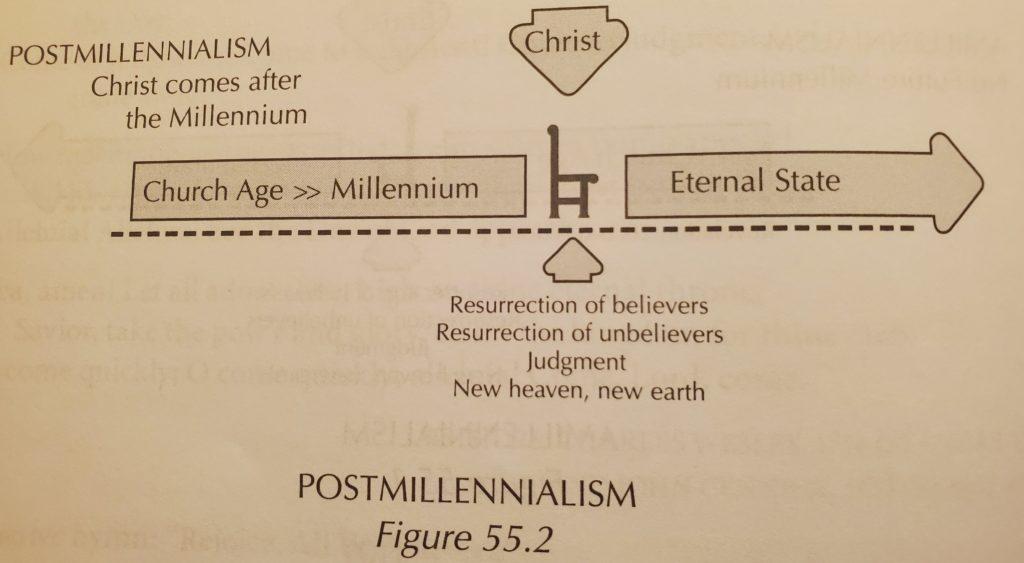
Arguments for Postmillennialism
- The Great Commission leads us to expect the gospel will go forth in power and result in a largely Christian world since Jesus said “All authority in heaven and on earth has been given to me. Go therefore and make disciples of all nations” (Matthew 28:18-19).
- Parables of the gradual growth of the kingdom indicate it will grow until it fills the earth. See Matthew 13:31-32.
- The “millennium” of postmillennialism is an indeterminate period of time where Christian influence increases until Jesus returns requiring a symbolic understanding of Revelation 20:1-6.
Historic Premillennialism
Historic or Classical premillennialism believes in a literal millennium. According to historic premillennialism, the present church age will continue until the Great Tribulation. Christ will return at the same time as the resurrection of believers. Then Christ will begin to reign for a thousand years.
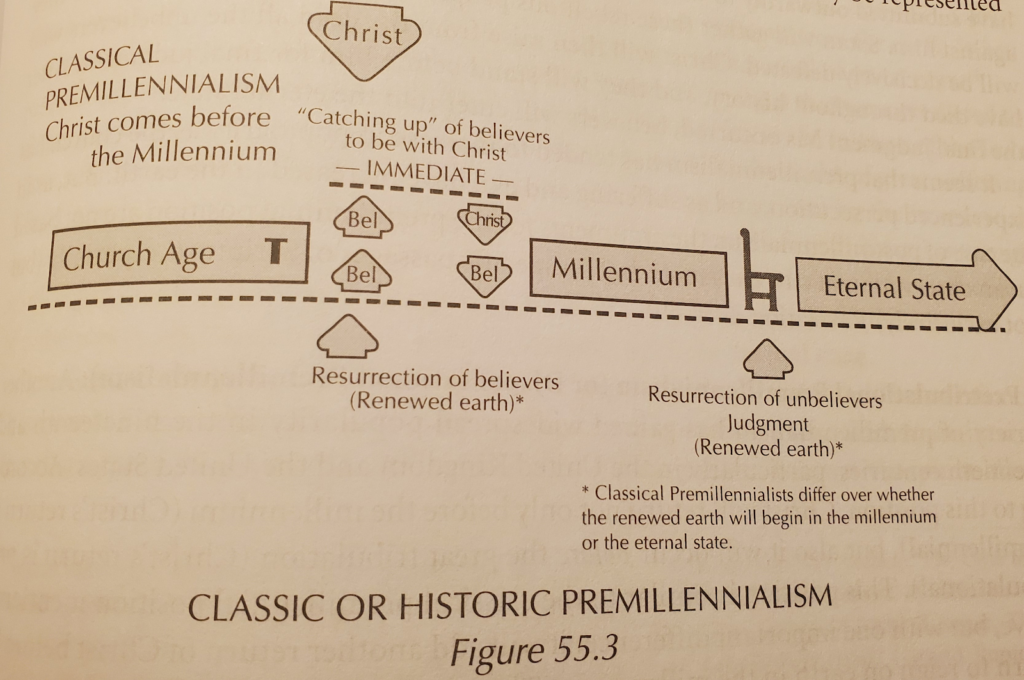
Pretribulational Premillennialism
A second type of premillennialism is pretribulational or dispensational premillennialism. “Pretribulational premillennialism” teaches the resurrection of believers and rapture happens before the Great Tribulation when Jesus secretly returns but doesn’t show himself to the world. Once the church is removed from the earth, the Great Tribulation starts and ends 7 years later when Christ returns for all people.
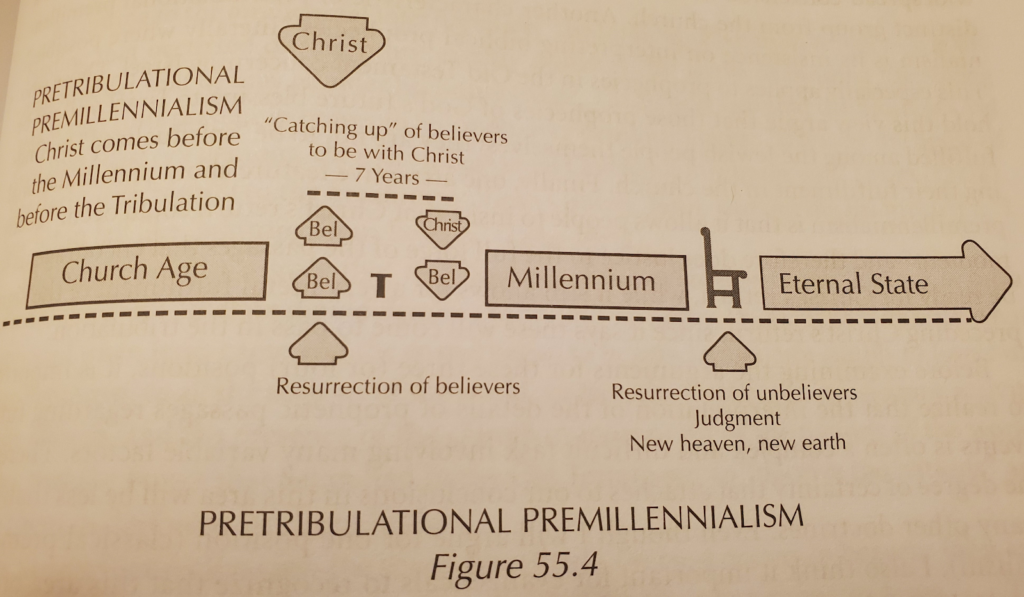
Arguments for Premillennialism
- Several Old Testament passages do not fit either the present age or the eternal state. The Bible refers to a time when infants don’t die in infancy, few people live under a hundred years, the wolf lives peacefully with the lamb, and other unique events are fulfilled (See Isaiah 65:20; Isaiah 11:6-9; Isaiah 11:10-11; Psalm 72:8-14)
- The millennium passage (Revelation 20:1-6) is read in a natural way without symbolism.
- The binding of Satan is understood in a more natural way indicating a far greater restriction of activity than he currently has (Revelation 20:2-3).
- Reigning with Christ is understood to be still in the future, not something occurring now as amillennialists claim (Revelation 20:4).
The Great Tribulation
The Great Tribulation is time of great trial and hardship that will happen before the millennium or the judgment. It will also include many signs that precede the return of Christ. The term comes from Matthew 24:21 where Jesus said, “For then there will be great tribulation, such as has not been from the beginning of the world until now, no, and never will be.” In historical premillennialism, the Great Tribulation happens before the return of Christ. In pretribulational millennialism, the Great Tribulation happens after “the Rapture” when God’s people are taken to heaven.
Application: Emphasis on the Millennium Depends on the Position
There are three major theological positions on the millennium: amillennialism, postmillennialism, and premillennialism. However, only premillennialism believes the millennium will be literally fulfilled. The other positions require a symbolic understanding of the millennium. Whatever position is correct, it will affect the way the Christian views the end times and the return of Christ. Understanding the millennium properly may not be a core doctrinal issue, but it will affect other aspects in our theology so it’s still important.
“Then I saw thrones, and seated on them were those to whom the authority to judge was committed. Also I saw the souls of those who had been beheaded for the testimony of Jesus and for the word of God, and those who had not worshiped the beast or its image and had not received its mark on their foreheads or their hands. They came to life and reigned with Christ for a thousand years. The rest of the dead did not come to life until the thousand years were ended. This is the first resurrection. Blessed and holy is the one who shares in the first resurrection! Over such the second death has no power, but they will be priests of God and of Christ, and they will reign with him for a thousand years.” (Revelation 20:4-6)
Special Terms
- amillennialism
- Dispensational premillennialism
- Great tribulation
- Historic premillennialism
- midtribulation rapture
- millennium
- postmillennialism
- posttribulational premillennialism
- postribulation rapture
- premillennialism
- pretribulational premillennialism
- pretribulation rapture
- rapture
Resources: Wayne Grudem
- Wayne Grudem: Book: Systematic Theology: An Introduction to Biblical Doctrine
- Wayne Grudem: 148 Lectures on Systematic Theology at Scottsdale Bible Church
Related Resources
- OpenBible.info: Verses on the Millennium
- Blue Letter Bible: Four Views on the Millennium
- David J. Engelsma: A Defense of (Reformed) Amillennialism
- Monergism.com: Articles on Postmillennialism
- Monergism.com: Articles on Historic Premillennialism
- Desiring God Video (2:06:54): An Evening of Eschatology – Three Views
Image credit: Nils Nedel on Unsplash


